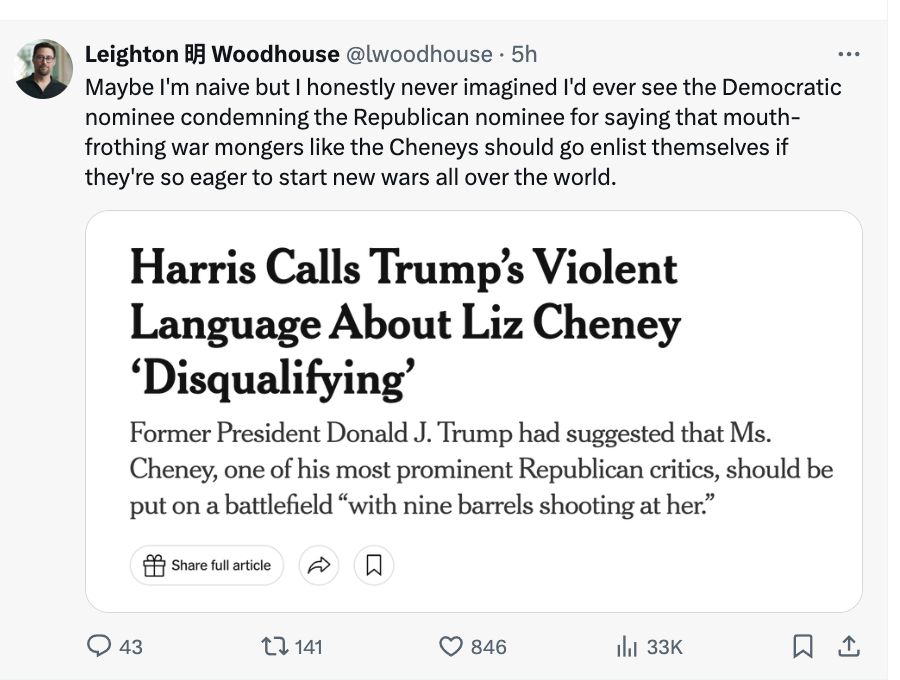Democrats Embracing the Warmongers
This wasn't on my Bingo card either . . .
The NYT did a mea culpa for its Iraq war lies:
But we have found a number of instances of coverage that was not as rigorous as it should have been. In some cases, information that was controversial then, and seems questionable now, was insufficiently qualified or allowed to stand unchallenged. Looking back, we wish we had been more aggressive in re-examining the claims as new evidence emerged -- or failed to emerge.





